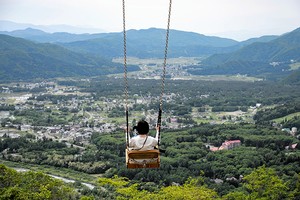By MASAKI KASAI/ Staff Writer
March 23, 2023 at 07:10 JST
Ace hurler Yu Darvish has not only thrown his best pitches from the mound for the San Diego Padres and Samurai Japan in the World Baseball Classic.
He’s also the pitchman for the Darvish Yu Water Fund, which has provided safe drinking water to people in developing countries since 2007.
Darvish was 20 and in his third year with the Hokkaido Nippon-Ham Fighters when he set up the fund with the nonprofit organization Japan Water Forum in March 2007.
He embarked on his initiative out of concern for people who are using contaminated water sources or suffering from unsanitary conditions in impoverished countries and regions.
“When I asked myself if I could do something for society and the world through baseball, I decided to start with what little I could,” Darvish said at the time. “I hope my modest thoughts will encourage many people and myself over time.”
The fund had financed 15 projects in 11 countries, such as digging wells and installing water pumps and rainwater-harvesting tanks, by the end of last year.
Darvish has donated 100,000 yen ($750) for every game he wins.
The fund had received about 23 million yen in revenue by March 2022, including donations from supporters.

Most of the projects have been carried out in Asia, where he has ancestral roots, but there are other locations in the Pacific region and Africa. The host nations include India, Pakistan, Nepal, Thailand, Cambodia, the Solomon Islands and Nigeria.
Darvish’s father is a native of Iran and his mother is Japanese.
Even in developing countries, urbanized and densely populated areas often receive assistance from national governments, international nongovernmental organizations and other entities.
The Darvish Yu Water Fund has worked in areas with limited access to assistance programs on a grass-roots level.
Officials ensure that local residents are trained in the maintenance of equipment because even the latest machinery could fall into disuse if they cannot keep it operating.
In Bangladesh, rainwater-harvesting tanks for 15 households and toilets for 12 households were installed in rural communities in 2012.
Residents had relied on arsenic-tainted well water and dirty water from reservoirs, and people from many households had relieved themselves out in the open air.
The project improved the sanitary environment and also made it possible to utilize human waste from the toilets as manure for farming.
A local woman said she was happy because she now had access to clean water, which she could give her children to drink without anxiety.
In Pakistan, 10 wells with hand pumps were installed in 2018 for villagers affected by a flood.
Many children previously had to venture to distant water sources to draw water.
“We are no longer losing time for studying,” a teenage boy was quoted as telling a follow-up study last November. “My younger siblings no longer have to go to see doctors because clean water became available.”
Darvish contributed a comment to the fund’s photo exhibition in August 2019.
“Now that I have a family of my own, I am realizing more than ever how important water is. I also want my children to know that,” he said. “I sincerely hope that as many people as possible will be freed from a shortage of water.”
Miyo Tabata, a Japan Water Forum manager in charge of Darvish’s fund, said, “I am feeling that the communities we have helped have come to think more of water and have grown livelier. I hope the public will learn more about what we are doing.”
A request for donations can be found on the Japan Water Forum’s Japanese-language website (https://www.waterforum.jp/what-we-do/darvish/).




















A peek through the music industry’s curtain at the producers who harnessed social media to help their idols go global.
A series based on diplomatic documents declassified by Japan’s Foreign Ministry
Here is a collection of first-hand accounts by “hibakusha” atomic bomb survivors.
Cooking experts, chefs and others involved in the field of food introduce their special recipes intertwined with their paths in life.
A series about Japanese-Americans and their memories of World War II